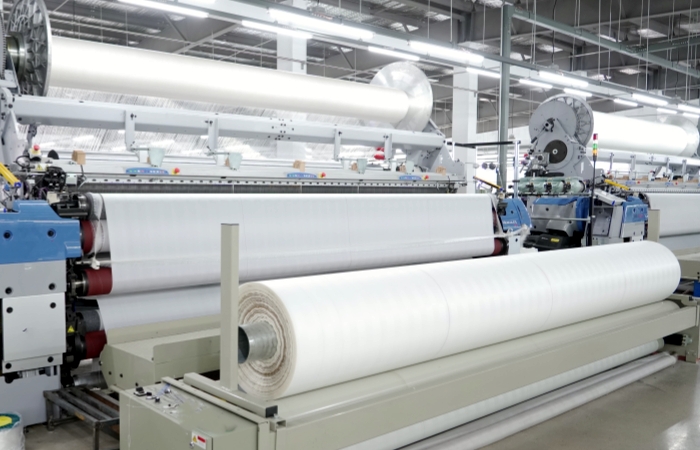In the production process of industrial filter cloth, heat setting is a crucial step. It primarily utilizes the plasticity of synthetic fibers, through heating, stress application, and cooling, to rearrange the molecular chains of the fibers, achieving stable dimensions and shape.
The heat setting treatment typically begins after the fibers are woven. The core of the shaping process is the use of the thermoplasticity of synthetic fibers. Synthetic fibers, such as polyester and nylon, undergo significant changes in their microstructure and shape when exposed to high temperatures, due to the rearrangement of their macromolecular chains. These changes can be relatively permanently maintained after cooling.

There are also some key factors to control during the heat set process. For example, the choice of shaping tension and temperature should be determined based on the application environment of the filter cloth. Different tensions and temperatures will lead to different molecular chain arrangements, thus affecting the final performance of the filter cloth. Additionally, the pre-treatment of the fabric before shaping is also a critical step that cannot be overlooked.
In industrial practice, shaping treatment is often combined with chemical treatments to further enhance the performance of the filter cloth. For example, resin finishing treatments can be applied to the fabric before shaping to improve its wrinkle resistance, abrasion resistance, and water resistance. The combination of these chemical treatments and shaping treatments results in a comprehensive improvement in the performance of industrial filter cloth.
Bolian filtering materials strictly follow the process during production, with each step carefully inspected and adhering to ISO9001 standards, ensuring that every batch and every piece of filter cloth meets the requirements of quality inspection standards.